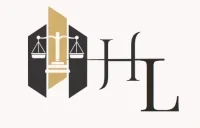
In a recent judgment in the case of K. Ravi vs. State of Tamil Nadu & Anr. (Criminal Appeal arising out of SLP (Crl.) No.2029 of 2018, decided on August 29, 2024), the Supreme Court of India has provided significant clarity on the scope and limitations of revisional powers under Section 397 of the Criminal Procedure Code (CrPC). More particularly, it clarifies revisionary powers in cases where revision petitions are filed against interlocutory applications and revision applications preferred against denial of petitions filed under Section 216 of CrPC.
At the outset, the case revolves around an accused who had been charged with multiple offenses, including causing grievous hurt. The accused had preferred a revision petition against the denial order passed by the Sessions Court in a modification of charges petition filed under Section 216 of CrPC. In this revision petition, it seems that the High Court had discharged the accused, exercising its power granted under Section 397 of CrPC. Against this order for discharging the accused, our Hon’ble Supreme Court had expressed various observations as to how the powers under Section 397 CrPC should be exercised, ruling completely against the orders of the High Court.
Facts of the Case:
The case arose from a criminal incident that occurred on November 24, 2009, in Dharmapuri, Tamil Nadu. An FIR (No. 2074 of 2009) was registered against nine accused, including the Respondent No. 2 (A-2), for offenses under Sections 147, 148, 323, 324, 307, and 302 of the Indian Penal Code (IPC). The allegations involved a violent altercation during a political party nomination filing, resulting in the death of the complainant’s brother.
After investigation, a chargesheet was filed against 31 accused. The Respondent No. 2 filed for discharge, which was rejected by the Sessions Court and later by the High Court. Subsequently, charges were framed against all accused. The respondent subsequently had filed discharge petitions under Section 227 of CrPC, which seem to have also attained finality by disallowing the same by the High Court.
Thereafter, the Respondent No. 2 filed an application under Section 216 CrPC for modification of charges, which was dismissed by the Sessions Court.
Aggrieved by this, the Respondent No. 2 filed a revision petition under Section 397 CrPC in the High Court. The High Court, in an unusual order, allowed the revision and directed further investigation under Section 173(8) CrPC. This order of the High Court was challenged before the Supreme Court.
How can this Judgment be helpful:
This judgment can be cited as a precedent in cases where revision petitions have been preferred against Section 216 petitions, interlocutory orders, and other orders passed by lower courts.
This judgment serves as a crucial guideline for lower courts and High Courts in exercising their revisional powers under Section 397 CrPC. It discourages the misuse of revisional jurisdiction to delay criminal proceedings and emphasizes the need for expeditious trials.
Supreme Court’s Analysis:
The Supreme Court had reversed the judgment of the High Court and expressed its strenuous concerns about powers used for discharging the accused under Section 397 of CrPC. The Key Observations on Section 397 CrPC are as follows:
1. Limited Scope of Revision: The Court reiterated that the revisional jurisdiction under Section 397 is very limited and should not be exercised routinely. It emphasized that the power should be used sparingly and only in specific circumstances.
2. Grounds for Interference: The Court outlined several grounds where revisional powers may be invoked:
– When the decision under challenge is grossly erroneous
– When there is non-compliance with provisions of law
– When the finding is based on no evidence
– When material evidence is ignored
– When judicial discretion is exercised arbitrarily or perversely
3. Bar on Revision of Interlocutory Orders: The Court highlighted the express bar contained in sub-section (2) of Section 397, which prohibits revision of interlocutory orders. It specifically noted that an order dismissing an application for modification of charges under Section 216 CrPC is interlocutory in nature and thus not revisable.
4. Caution in Interfering with Charge Framing: The judgment emphasizes that courts should be extremely circumspect in interfering with orders framing charges. It notes that charge framing is an advanced stage in criminal proceedings, and revisional powers should be exercised with great caution in such matters.
5. Purpose of Revisional Jurisdiction: The Court clarified that the object of Section 397 is to set right a patent defect or an error of jurisdiction or law. It is not meant for scrutinizing orders that, on the face of it, bear a token of careful consideration and appear to be in accordance with the law.
The Supreme Court’s stern view on filing repeated applications for discharge or modification of charges after the initial dismissal is particularly noteworthy. It labels such practices as “highly deplorable” and directs courts to deal with them sternly.
Relevant Citations:
1. Amit Kapoor vs. Ramesh Chander and Another (2012) 9 SCC 460 – The Supreme Court referred to this case to explain the scope of Section 397 CrPC and the limited grounds for interference in revision.
FAQs:
1. What is Section 216 of CrPC and 239 of BNSS, 2023?
A in general, this provision gives power to the trial court to alter, amend, modify or delete its charges framed previously. An application may be filed by the accused or complainant or other stakeholders where charges were not properly framed in the trial case. The provision reads as follows:
“216 Court may alter charge
1. Any Court may alter or add to any charge at any time before judgment is pronounced.
2. Every such alteration or addition shall be read and explained to the accused.
3. If the alteration or addition to a charge is such that proceeding immediately with the trial is not likely, in the opinion of the Court to prejudice the accused in his defence or the prosecutor in the conduct of the case the Court may, in its discretion, after such alteration or addition has been made, proceed with the trial as if the altered or added charge had been the original charge.
4. If the alteration or addition is such that proceeding immediately with the trial is likely, in the opinion of the Court to prejudice the accused or the prosecutor as aforesaid, the Court may either direct a new trial or adjourn the trial for such period as may be necessary.
5. If the offence stated in the altered or added charge is one for the prosecution of which previous sanction is necessary, the case shall not be proceeded with until such sanction is obtained, unless sanction had been already obtained for a prosecution on the same facts as those on which the altered or added charge is founded.”
Relevant Provision under new BHARATIYA NAGARIK SURAKSHA SANHITA, 2023:
- S.337 of CrPC: Calling for records to exercise powers of revision: S.438 of BNSS, 2023.
- S.216 of CrPC: The court may alter charge: S.239 of BNSS, 2023.
Read our recent summaries.
-
Supreme Court Quashes Criminal Proceedings After One Time Settlement: Key Takeaways for Banking Fraud Cases
Supreme Court quashes criminal proceedings in N.S. Gnaneshwaran case after One Time Settlement between parties, emphasizing no continuing public interest warrants prosecution continuation.
-
Supreme Court Clarifies Whether an Application for Extension Under Section 29A(5) Can Be Filed After the Expiry of Time for Passing an Award.
This article discusses the Supreme Court’s clarification on Section 29A(5) of the Arbitration and Conciliation Act, addressing whether an application for extending the time limit to pass an arbitral award can be filed after the expiry of the prescribed period. Learn how the court’s ruling affects arbitration timelines and tribunal mandates
-
An Analysis of Implied Consent in Arbitration Proceedings Continuing Beyond 12 Months: A Brief Examination in Light of the Madras High Court’s Recent 2024 Judgment.
Explore the concept of implied consent in arbitration proceedings under Section 29-A of the Arbitration and Conciliation Act, focusing on the recent 2024 Madras High Court judgment in Ayyasamy vs. Shanmugavel. Understand the implications of continuing arbitration beyond the 12-month statutory limit.
